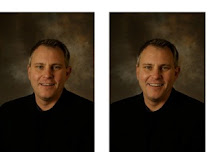Ben,
Thanks for your attachment on the core competencies. These are very well stated and make complete sense. Another competency that I would add is toknow the missional polity/structure of the UMC and know where to findresources, how to enter a covenant relationship with a UM missionary, how to support disaster relief, where to get UMVIM training, etc. I would still like to go back to Paul's question and ask what is our mandate as a sub-committee: Are we to develop course objectives, core competencies or both? Another way to put the same question is to ask: At the "UM @ 40" consultation how could we best use our time to influence theother UM professors? I think we should do both, but realize that as a professor we can really only have control over the course objective, as the competency is a much loftier goal that depends more on the student's ability to assimilate and appropriate the course content into his or her own life and ministry.
In response to Bill's proposal that we relate course objectives andcompetencies with the UM vision statement, I would say that both mission and evangelism relate to each of these four areas. I think that we would have to write a fairly in depth paper to show where each objective and competency fits into each of the four areas.
Phil
Blog Archive
Tuesday, July 1, 2008
Ben Hartleys' First Draft for UM Core Competencies in Mission
The purpose of this document is to identify the “core competencies” for United Methodist students at United Methodist seminaries in the study of Christian mission. The 2008 Seminary Task Force has also sketched out what it has named “core competencies.” This document elaborates on some of the points made by the Seminary Task Force but frames the competencies in terms of what, it is hoped, a student will be able to do after taking the course(s) in mission that is required of them.
The student will be able to understand that mission is constitutive of the very nature of the Triune God and thus mission is also integral to and thus inseparable from the nature of the church.
The student will be able to describe and define the interrelationship and distinctiveness of Christian mission and evangelism as indispensable to Christian witness to the Reign of God in the world.
The student will be able to identify how the whole of the Bible reflects the missio Dei in such a way that the Biblical foundations for mission extend well beyond the selection of a few stereotypically “missional” texts.
The student will be able to design and carry-out a mission education initiative for a United Methodist congregation that includes an awareness of Wesleyan mission history, theology, and current practice of the denomination’s mission agencies and programs
The student will be able to identify the challenges of cross-cultural communication in North American and global contexts and be familiar with the challenges faced by the growing immigrant Christian communities in America.
The student will be able to identify the strengths and weaknesses of short-term mission trips and understand how to make such trips both educationally effective and faithful to sound principles of missionary anthropology.
The student will be able to compare his or her personal theology of Christian mission with Scripture and major trajectories of missiological reflection in Roman Catholic, conciliar Protestant, and evangelical traditions in a global context.
The student will be able to understand that mission is constitutive of the very nature of the Triune God and thus mission is also integral to and thus inseparable from the nature of the church.
The student will be able to describe and define the interrelationship and distinctiveness of Christian mission and evangelism as indispensable to Christian witness to the Reign of God in the world.
The student will be able to identify how the whole of the Bible reflects the missio Dei in such a way that the Biblical foundations for mission extend well beyond the selection of a few stereotypically “missional” texts.
The student will be able to design and carry-out a mission education initiative for a United Methodist congregation that includes an awareness of Wesleyan mission history, theology, and current practice of the denomination’s mission agencies and programs
The student will be able to identify the challenges of cross-cultural communication in North American and global contexts and be familiar with the challenges faced by the growing immigrant Christian communities in America.
The student will be able to identify the strengths and weaknesses of short-term mission trips and understand how to make such trips both educationally effective and faithful to sound principles of missionary anthropology.
The student will be able to compare his or her personal theology of Christian mission with Scripture and major trajectories of missiological reflection in Roman Catholic, conciliar Protestant, and evangelical traditions in a global context.
Subscribe to:
Comments (Atom)
